GENRE
Festival
McKee’s 2024 Spring Webinar Program
5 Webinar Series
Live Online: April 2 – May 2, 2024
On Demand: Until June 30, 2024
Every story flows from a tradition of core events, characters, and values delineated by the genre in which you write. The writer’s first task is to identify the genre, or combination of genres that will inspire his or her creativity. The second is to master its possibilities.
All writers are genre writers. What kind of story are you telling?
2024 Spring Program
Love Story
Action
Crime Thriller
Horror
Comedy
GENRE FESTIVAL
Robert McKee’s
LOVE STORY
NOW ON DEMAND
Love Story
Webinar Series
3 Lessons
Robert McKee’s LOVE STORY Webinar Series explores the history and nature of romance, the storytelling principles involved in crafting the consummate love story, and how you can mix and merge genres to create something truly unique.
Robert McKee’s
Action
NOW ON DEMAND
Action
Webinar Series
3 Lessons
Robert McKee’s ACTION Webinar Series teaches the core principles of the genre, the structure of Action stories, and how to design set pieces in order to maximize the audience’s excitement.
Robert McKee’s
Crime Thriller
NOW ON DEMAND
Crime Thriller
Webinar Series
3 Lessons
Robert McKee’s CRIME THRILLER Webinar Series explores the nature of evil, the many subgenres of Crime, the particular perspective that defines the Thriller, and the conventions you must bend or break in order to create a masterful work.
Robert McKee’s
Horror
APRIL 23 – 25 / 1PM – 3PM (Eastern Time)
Horror
Webinar Series
3 Lessons
Robert McKee’s HORROR Webinar Series teaches the sources of horror, the hidden worlds within reality, how to create a Horror cast, the secret to writing a monster that will terrify your audience, and the creative choices available to the writer in the many subgenres of Horror.
Robert McKee’s
Comedy
APRIL 30 – May 2 / 1PM – 3PM (Eastern Time)
Comedy
Webinar Series
3 Lessons
Robert McKee’s COMEDY Webinar Series dives deep into this pointed genre to teach you the principles of cast design, the nature of comedic protagonists, and the unique worldview of the Comedy writer.
2023 Fall Program
Robert McKee’s
STORY
Story
Webinar Series
15 Lessons
Robert McKee teaches his legendary STORY Seminar online, giving you the opportunity to master the art of story from the convenience of your own home. Spanning 15 individual webinars on the substance of story, how to structure compelling narratives, maximizing your design and much, much more, McKee delivers his iconic writing masterclass in full.
2023 Summer Program
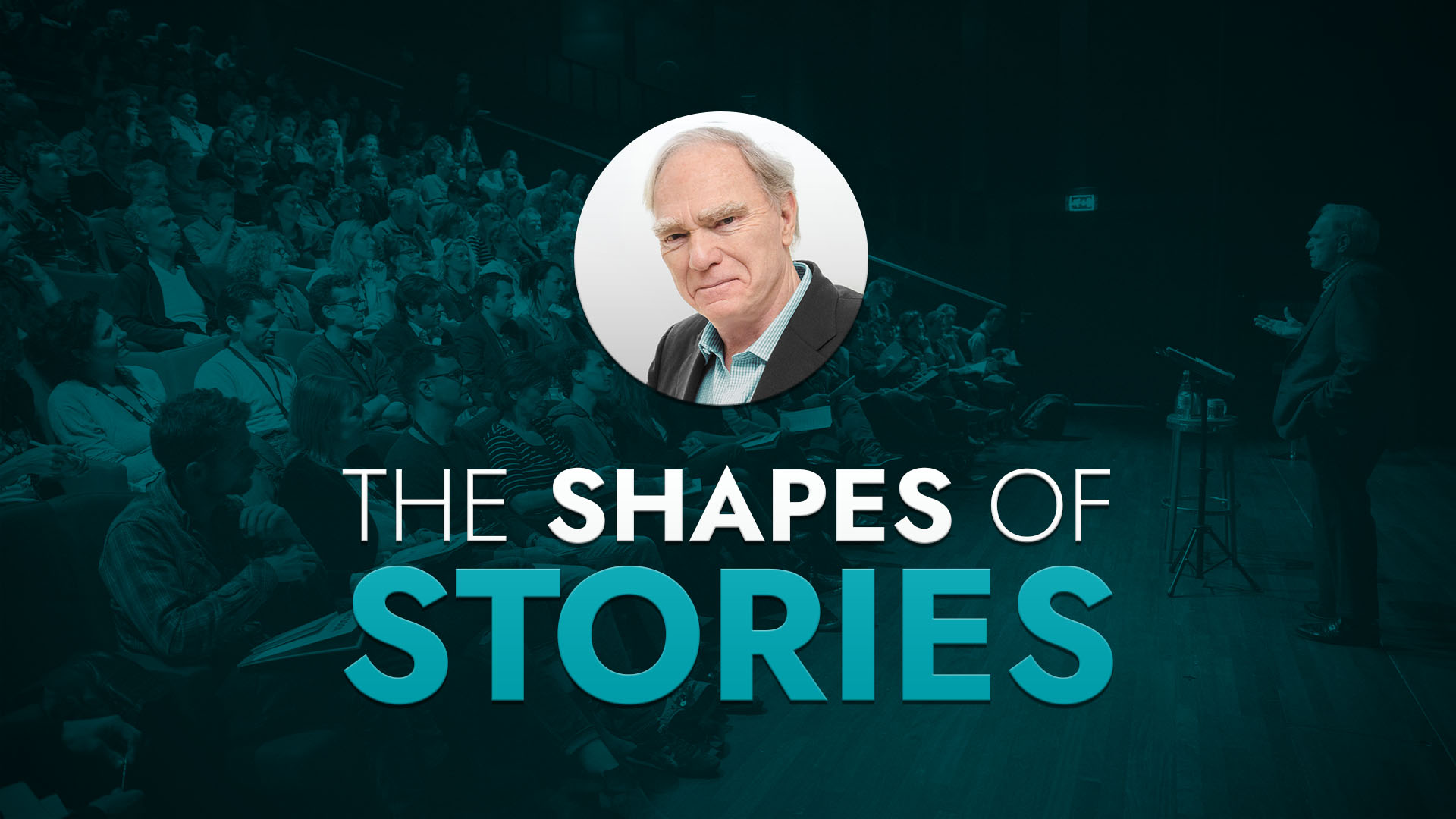
The Shapes of Stories
Webinar Series
3 Lessons
This webinar series surveys the full range of storytelling shapes, from the most dynamic popular plotting techniques to the depths and beauties of simplicity and beyond to the far reaches of the most exciting, radical designs.
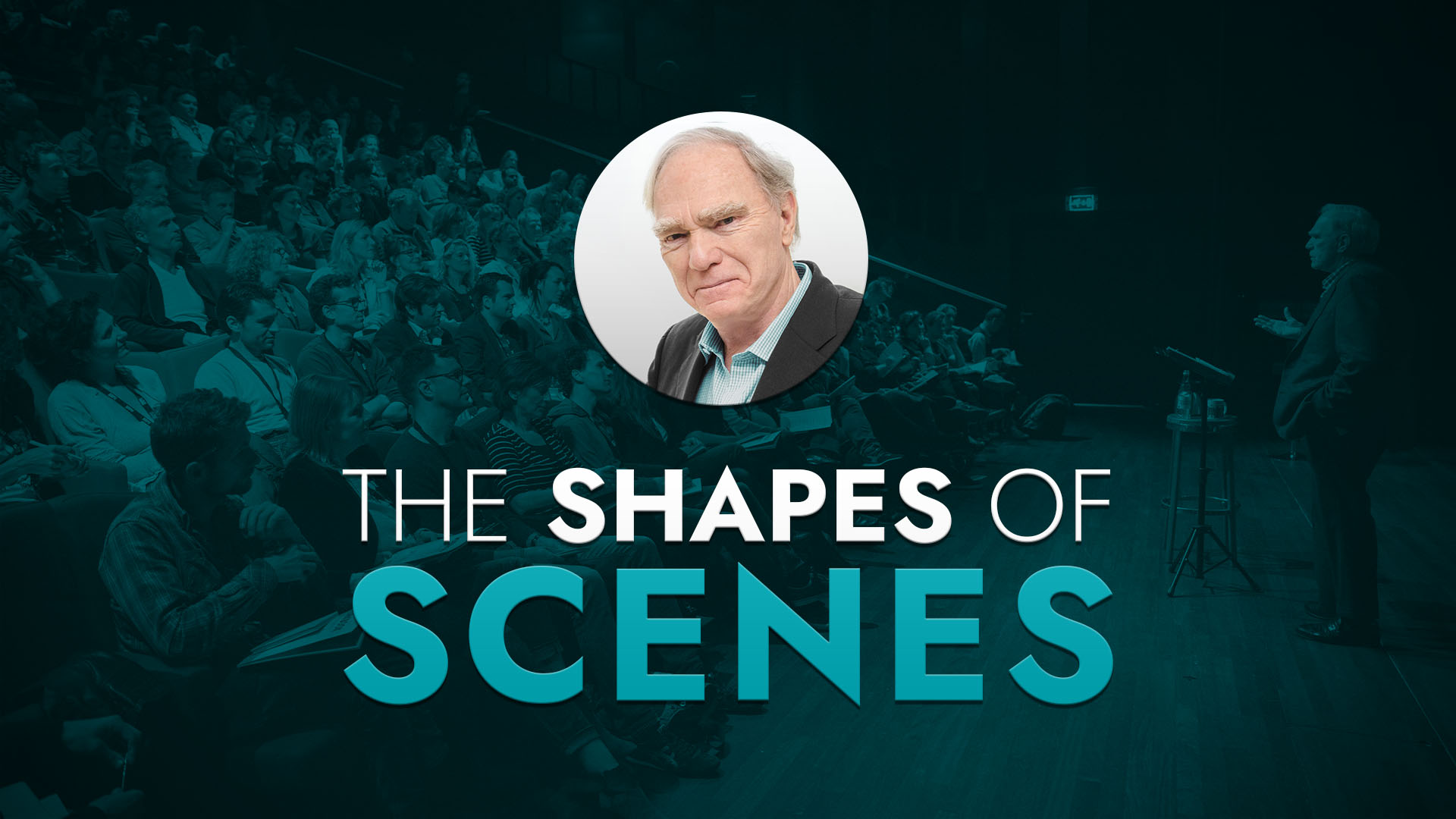
The Shapes of Scenes
Webinar Series
3 Lessons
This webinar series investigates the basic component of all storytelling: the scene. In a story’s flow of events, scene designs take on many different shapes. This series explores all possibilities for form, purpose and effect.
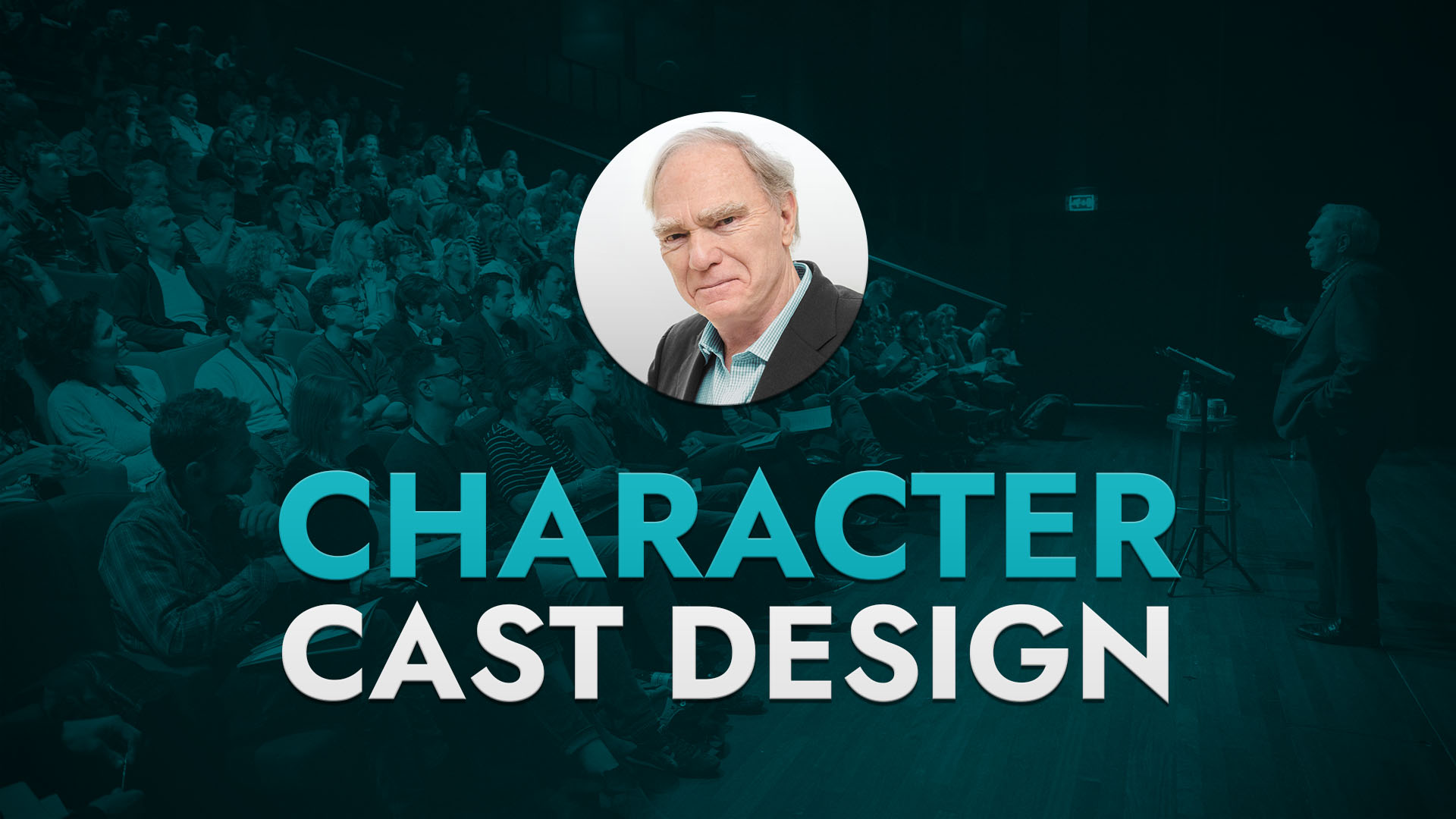
Character: Cast Design
Webinar Series
3 Lessons
This webinar series focuses on the multi-dimensional character and its complex relationship with the surrounding cast. McKee examines roles with unique complexities that range from the most realistic to the highly symbolic to the boldly radical.
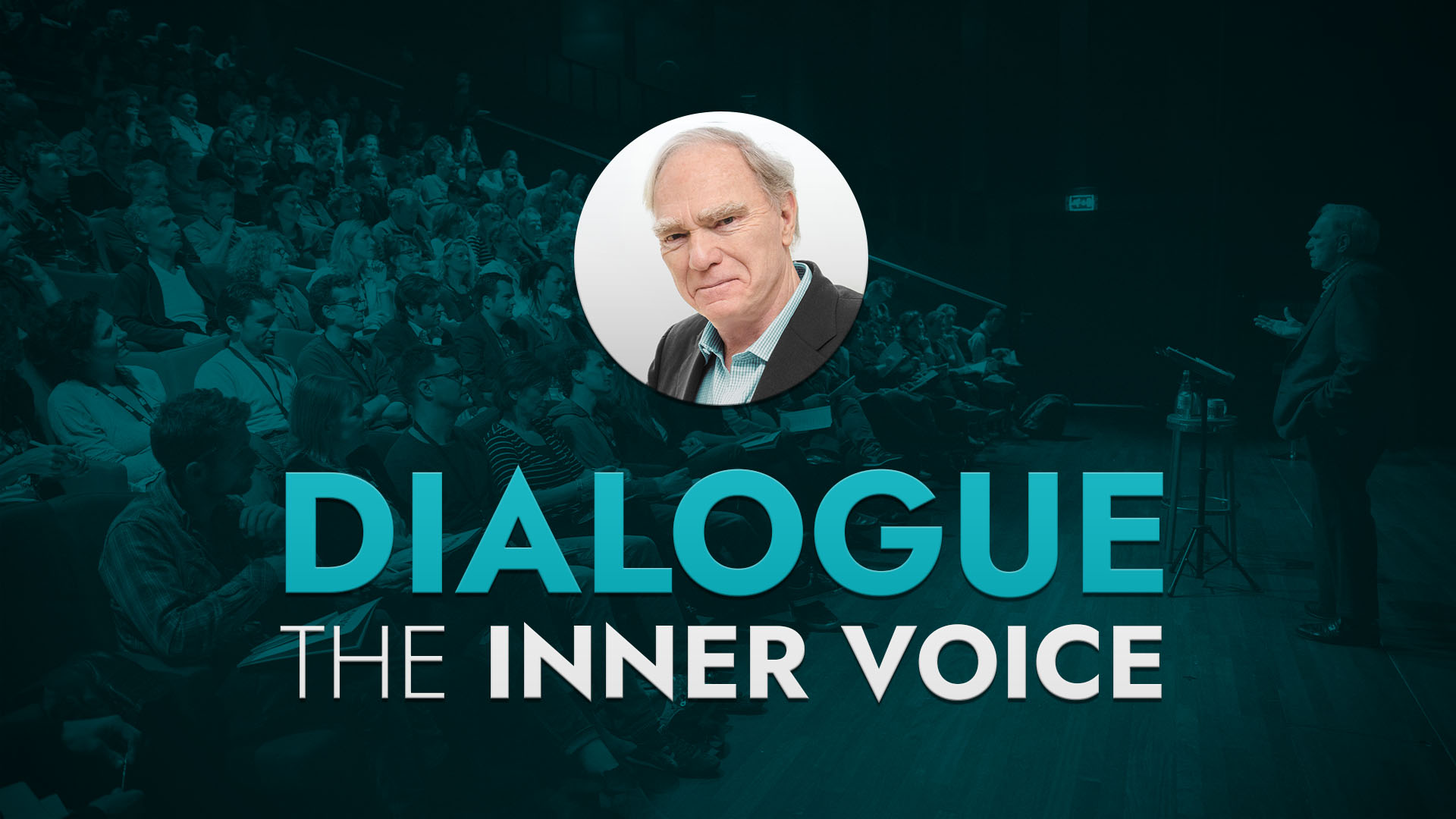
Dialogue:
The Inner Voice
Webinar Series
3 Lessons
No matter how lavish a play’s production, how vivid a novel’s descriptions, how lush a film’s photography, dialogue shapes the deepest complexities, ironies, and innerness of story. This webinar series focuses on the power of the first-person perspective and the challenges inherent in giving voice to a character’s inner thoughts and feelings on the stage, page, and screen.
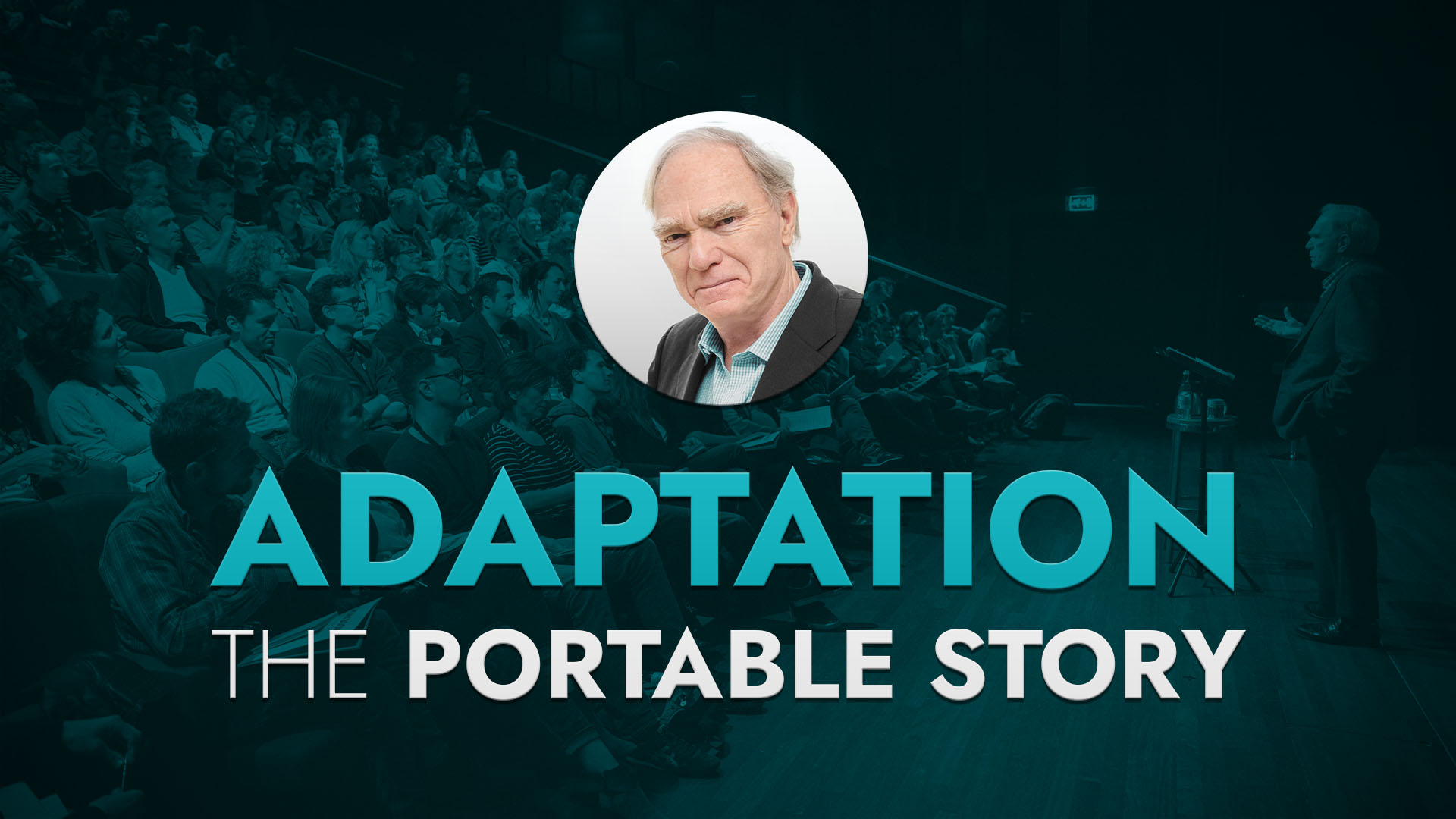
Adaptation:
The Portable Story
Webinar Series
3 Lessons
Shifting stories back and forth between page, stage and screen is rarely a simple matter of adaptation. This complex process almost always demands reinvention. In this webinar series, McKee lays out how the distinct powers of each medium reshape adaptations and how to preserve the essence of a telling while giving it a rebirth.
Previous Webinar Series
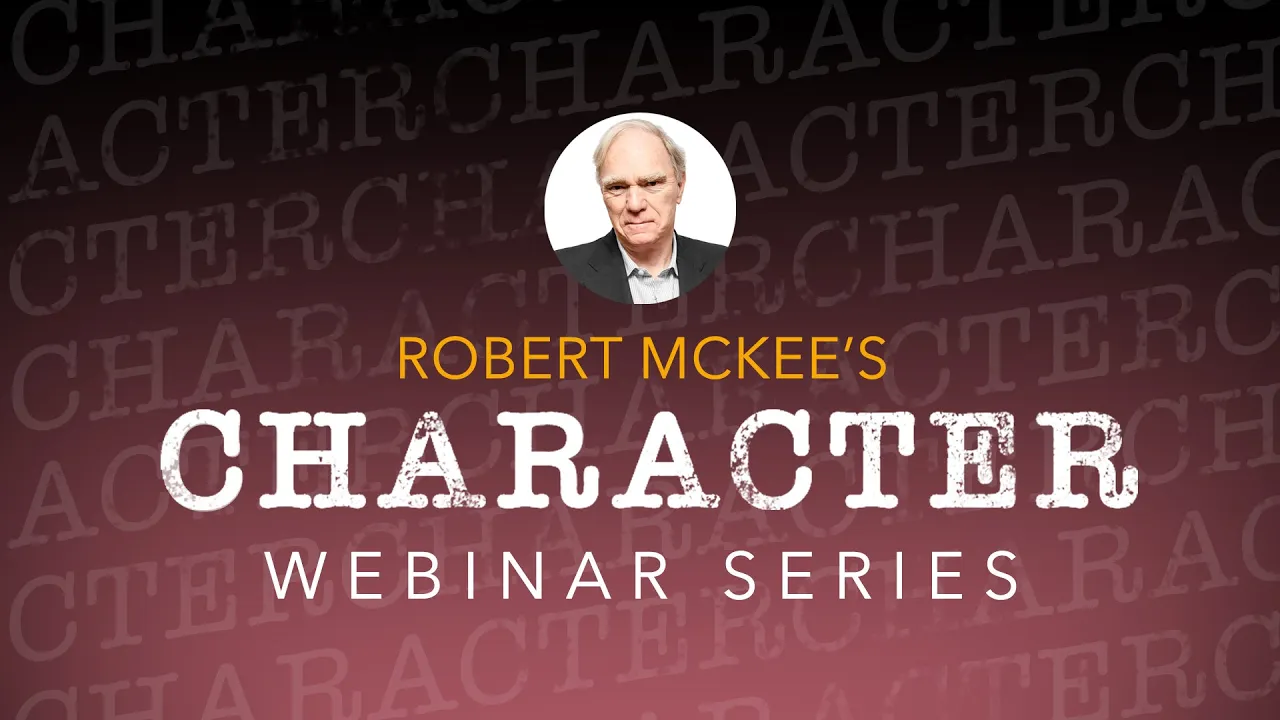
Character
Webinar Series
3 Lessons
Robert McKee’s CHARACTER Webinar Series teaches the art of character creation, deepens insight into hidden psychological depth, and provides the tools you need to configure an entire cast—from the protagonist outward through the first, second and third circles of supporting roles.
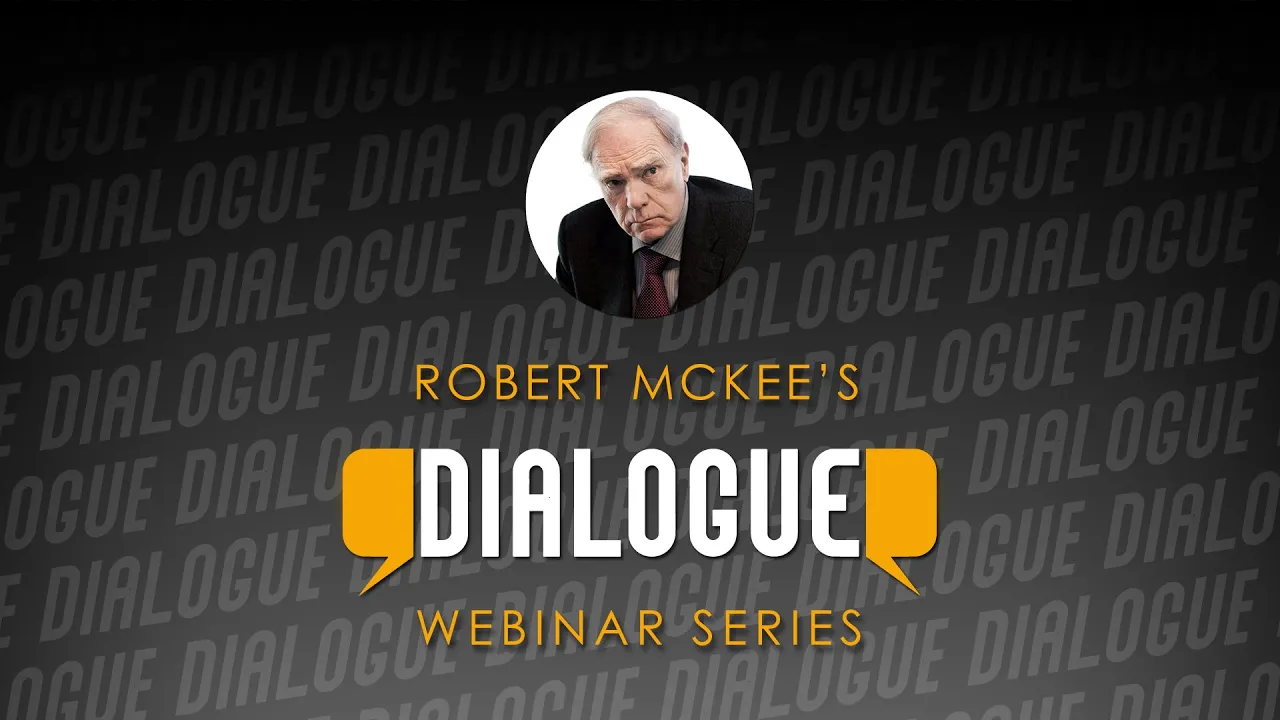
Dialogue
Webinar Series
3 Lessons
Robert McKee’s DIALOGUE Webinar Series teaches the multiple purposes of dialogue, cueing from character to character, the differences between effective and weak dialogue, and how to find and fix flaws.
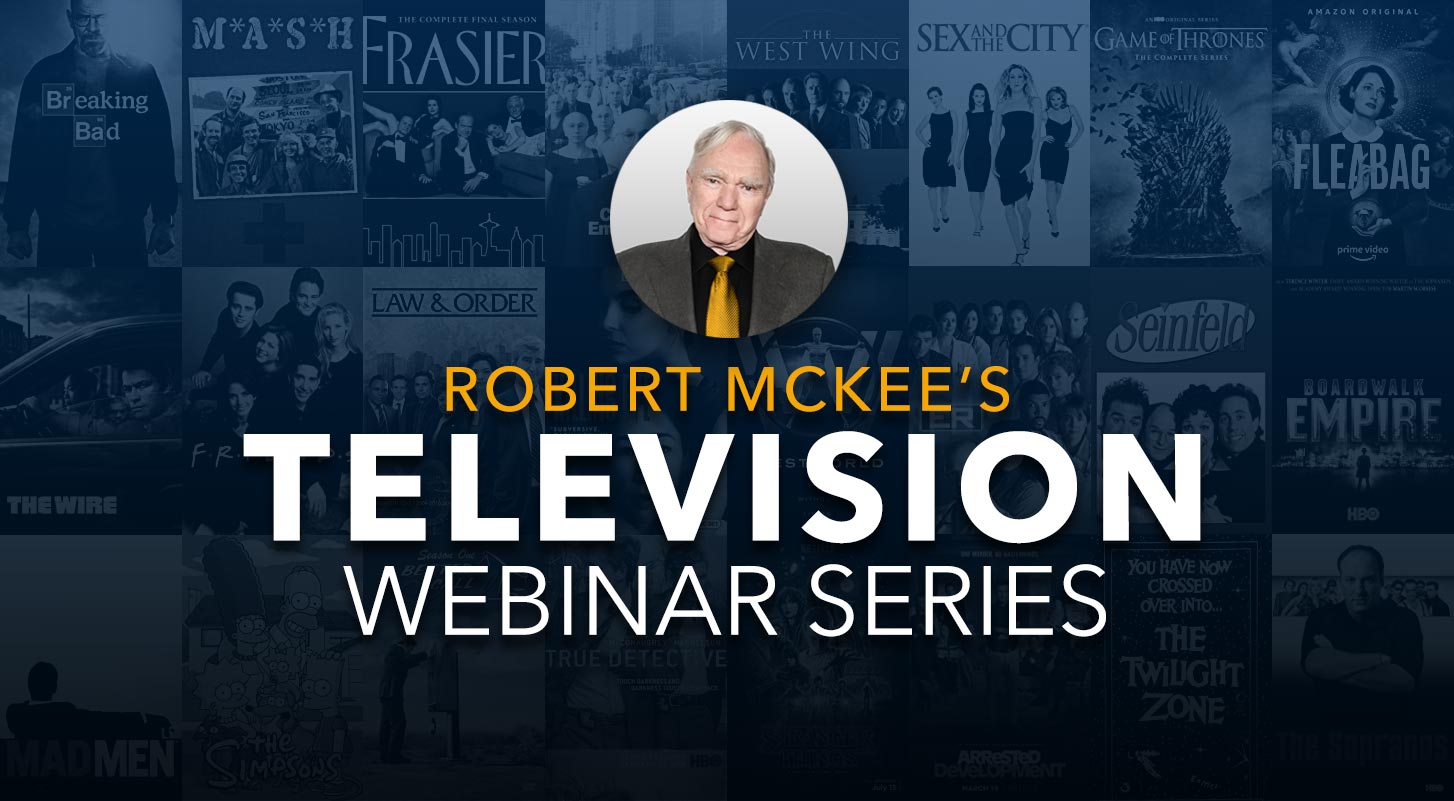
Television
Webinar Series
3 Lessons
Robert McKee’s TELEVISION Webinar Series teaches you the evolution and strengths of long-form storytelling, how to design your series across multiple seasons, and the unrivaled depths you can reach in character and story complexity.
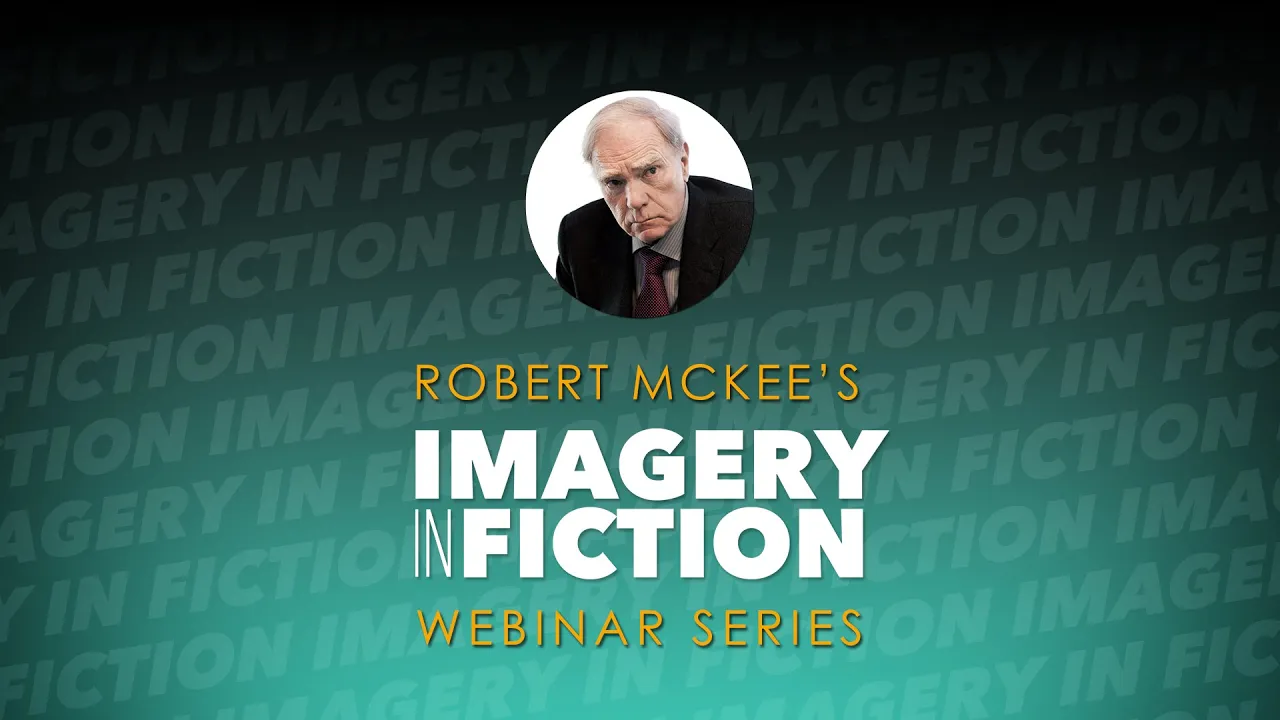
Imagery in Fiction
Webinar Series
3 Lessons
Robert McKee’s IMAGERY IN FICTION Webinar Series presents an all-new series of lessons teaching you how to elevate your story: how to create images for the eye versus the ear, the art of writing prose versus dialogue and settings, and the many ways to employ single, multiple and merged image systems in your work.

Story Drives
Webinar Series
3 Lessons
Robert McKee’s STORY DRIVES Webinar Series delivers three never-before-seen lectures on the inner and outer motivations of character, how they should be handled in different genres, before finishing the series with an in-depth breakdown of two contemporary television series.
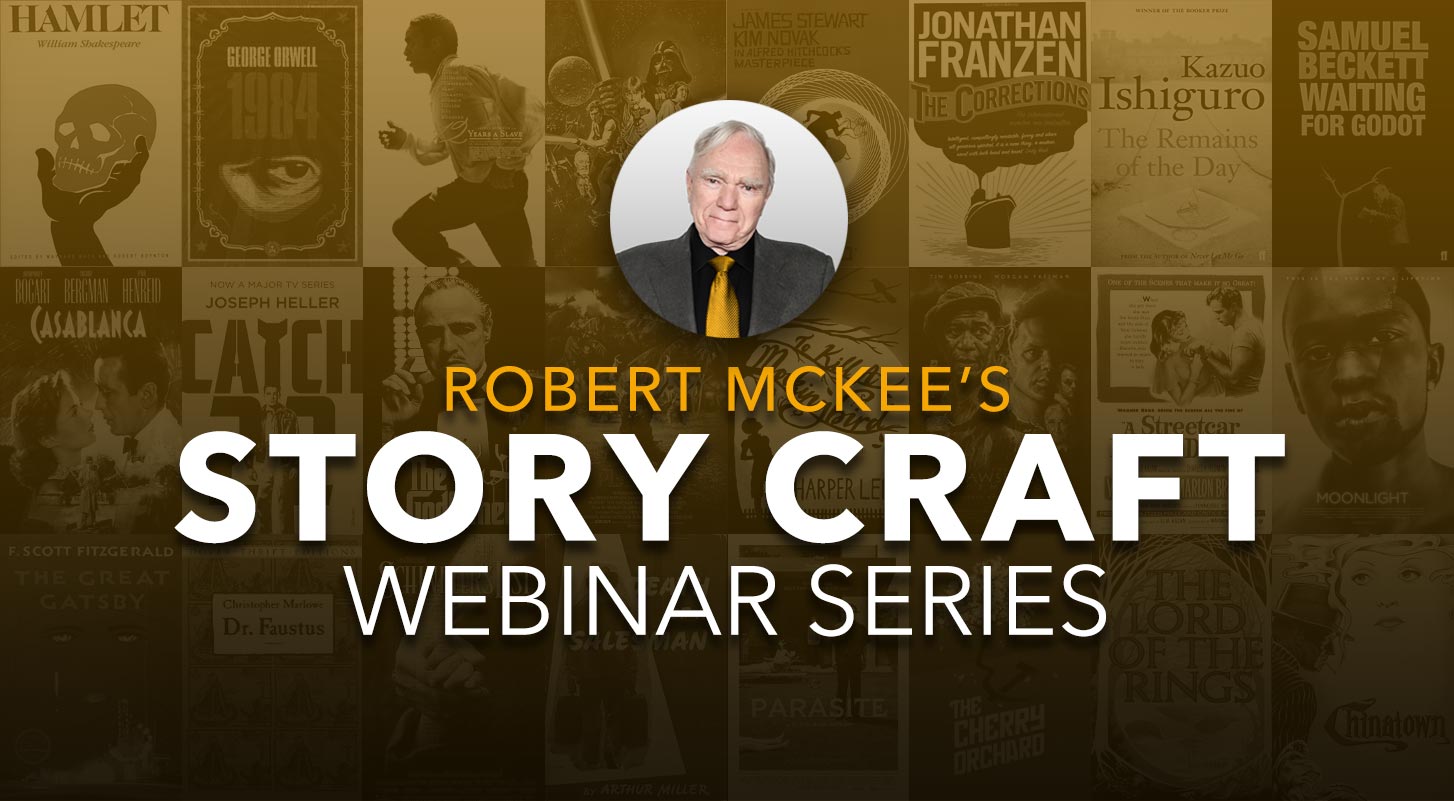
Story Craft
Webinar Series
3 Lessons
Robert McKee’s STORY CRAFT Webinar Series delivers the crucial insight you need to understand your work in the context of the story universe, to hook and hold audience interest, and to elevate your story to a work of art.
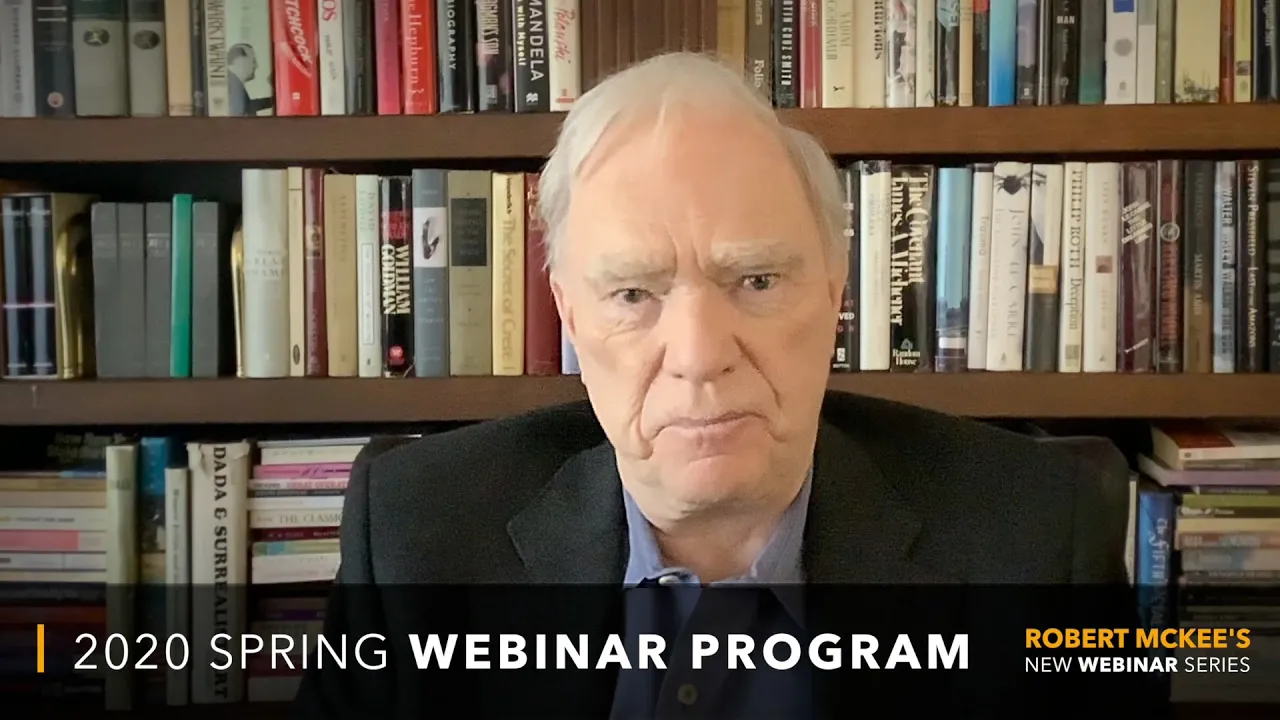
Story Elements
Webinar Series
6 Lessons
Robert McKee’s six-part STORY ELEMENTS Webinar Series teaches you how to build a scene, the art of the inciting incident, the nature of character dimensions, the importance of subtext, the principle of antagonism, and the core elements of genre.